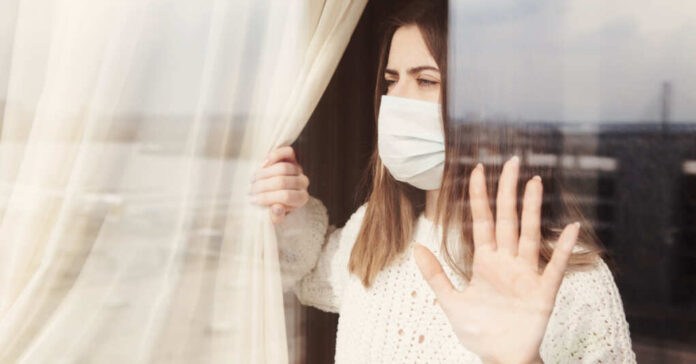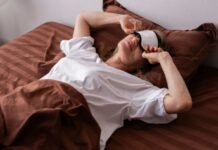
COVID-19’s pandemic might be over, but it’s led to a complete rethinking of state and federal health policies. And in New York, freedom and due process just lost.
Reason To Leave New York: Rule 2.13 gives NY the ability to come in your home and take you away to quarantine without notice. Keep you as long as they’d like and treat you as they see fit, including using methods that are still in testing! Leave now!pic.twitter.com/ic7Tae6NJv
— John Cremeans USA (@JohnCremeansUSA) November 23, 2023
As you well know, the introduction of COVID-19 in America brought all sorts of changes. The fear of the disease and the unknown led state lawmakers everywhere to begin instituting some rather frightening and all-encompassing rules and regulations.
Masks were ordered. Vaccines created and mandated. And, of course, quarantines and isolations were demanded.
In regards to the latter, New York’s Health Department implemented rule 2.13, which basically gave state officials the power to control the spread of such diseases by forcing “anyone into isolation or quarantine, despite the lack of evidence that a person is infected with COVID-19,” Justice Ronald Ploetz of the New York Supreme Court said.
Naturally, this is problematic, and as Ploetz ruled last year, the rule violates due process. And so he threw it out.
According to Ploetz, “Involuntary detention is a severe deprivation of individual liberty, far more egregious than other health safety measures, such as requiring mask-wearing at certain venues. Involuntary quarantine may have far-reaching consequences such as loss of income (or employment) and isolation from family.”
This was good news. Unfortunately, in the state of New York, the Supreme Court is not all that supreme. In fact, there are two court levels above it: the Appellate Division and the Court of Appeals.
So when liberal Governor Kathy Hochul’s administration (represented by power-hungry Attorney General Letitia James) appealed Ploetz’s ruling against the regulation, it had plenty of room to go.
And on November 17, the Appeals Court gave their ruling – in favor of Hochul and her administration.
Happening Now: The New York Appellate Division has ruled in favor of Governor Kathy Hochul in a landmark case for government overreach.
Rule 2.13: “Isolation and Quarantine Procedures” will give the state of New York the ability to come in your home and take you away to… pic.twitter.com/wpWHrjU7x8
— 🇺🇸Travis🇺🇸 (@Travis_in_Flint) November 22, 2023
Now, to be clear, the court didn’t rule on the merits of rule 2.13 or any objections to it. In reality, the ruling against it is a technicality.
According to the appeals court, the challengers didn’t have any “standing” to bring the case.
The challengers are state Senator George Borrello, Assemblymen Chris Tague, and former Assemblymen, now US Representative Michael Lawler, as well as the conservative group Uniting NYS. And yes, all three lawmen are Republicans.
Per the appeals court, neither the lawmakers nor the group have any real right to bring the case to court, as they are not directly affected by it.
As the Times Union reported, “The court found that the GOP officials and the organization did not sufficiently establish why they were so severely harmed and that the trial court failed to adequately rule on the merits of whether the petitioners had a right to bring the case in the first place.”
A technicality, indeed.
Sure, the lawmakers (as part of the legislature), neither Uniting NYS, have a direct “standing” to sue. However, one could argue that as individuals and American citizens, they most certainly have reason to be concerned about the rule. As should we all.
This ruling literally allows the state to seize and lock up anyone they want, where they want, for as long as they want, and how they want, all based on the possibility of a health risk. As Ploetz mentioned in his ruling, they don’t even need to have evidence of such.
It is government overreach at its finest. And now, thanks to the Appellate Division, there is precedent set to bar citizens from even challenging such overreach.
Thankfully, Borrello and the other challengers to the rule are not taking this lying down. They plan to fight, appealing this ruling and taking it to the highest court in the state, the New York Court of Appeals.
Let us all pray their appeal is successfully made and that due process wins out in the end. If not, you might as well kiss freedom in New York goodbye.
Kathy Hochul and Letitia James are successful in overturning the decision for rule 2.13 (quarantine camps) in New York and also want to make sure your kids learn only state approved truth and not crazy conspiracies https://t.co/g5pe36fFYg pic.twitter.com/qGyUUjdxrI
— Shipwreck (@shipwreckshow) November 21, 2023














